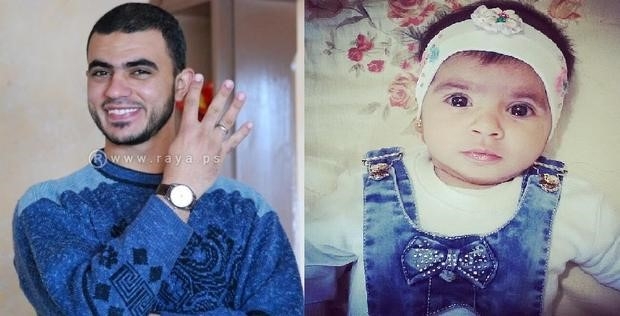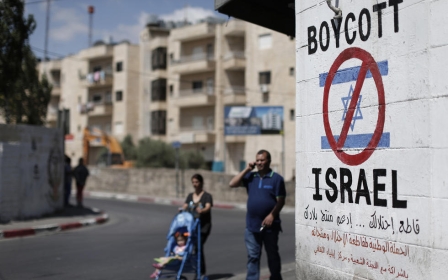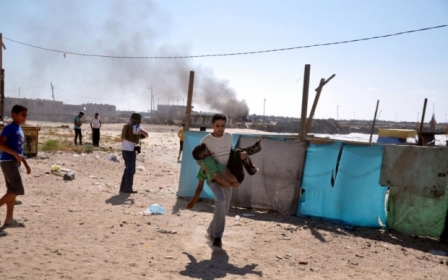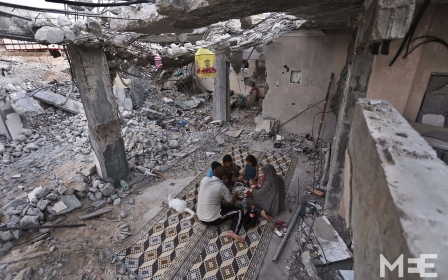Gaza one year on: 'I died a thousand times every minute'
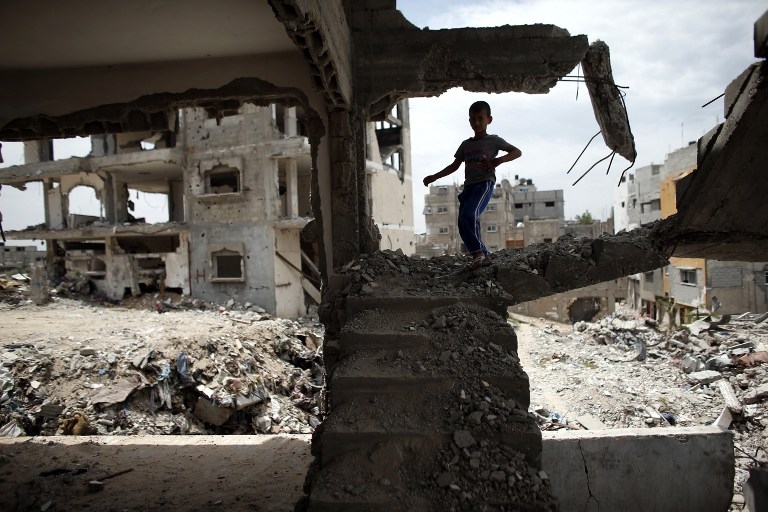
On the anniversary of the Gaza war which killed 2,251 Palestinians and 73 Israelis and devastated the enclave still rebuilding from two previous wars, MEE spoke with two Palestinian women who wrote about the war as it unfolded around them last July.
What did they say then and how has the past year changed them?
Shujaiyeh, a neighbourhood in the eastern part of Gaza City, is one of the most densely populated areas in the Gaza Strip. In the early hours of 20 July 2014, Israel bombed it indiscriminately, killing over 70 people and injuring more than 200 others. Images of entire neighbourhoods destroyed attested to the heavy pounding to which Shujaiyeh was subjected.
Marah Elwadia, a 24-year-old journalist who grew up and lives in Shujaiyeh, wrote an account of the attack for Lebanese daily Assafir, describing the morning that the air strikes began:
The screaming increased and we asked for help from the house only a few metres away from ours. The smoke was rising from the upper floor, and we were suffocating, nothing around us but flames.
The artillery shelling around us intensified, and we were waiting for death. I waited for the fall of the missile to imagine the awful scene that would be presented on television. We only felt death that day, even as we were breathing. I would smile one moment then frown at another, as a reel of my memories unfolded before my eyes. Every corner in my house has a memory, but today, it is our grave, suspended in time.
We thought that the situation would calm down with sunrise, and so we refused to leave our house. Things escalated unexpectedly, which drove many people on our street to leave their homes. Soon our street was evacuated, with only us left. A missile fell on a house in the neighbouring street, and all those inside were killed. No one could get to them, not the ambulance nor the firefighters, not even the Red Cross.
We were forced to leave our house after pressure from our relatives. We carried with us only our identification papers, money, and our mobile phones. We stepped outside, expecting death at any moment. The streets were empty, with the exception of those escaping, photographers and medics. As for the injured, they were watching us as they waited for death to take them.
When we arrived at the Shujaiyeh intersection, we almost broke down: entire families were displaced, carrying their children, pushing their elderly on wheelchairs, while the young carried clothes. The municipal cars and ambulances were also present. A large number of journalists were watching us from the outskirts of the neighbourhood, each one of them trying to help.
As we left Shujaiyeh, we began to take in what just happened, and we realised that the age of miracles was not yet over: we were still alive, physically unharmed, breathing, but we are not okay. The “Sabra and Shatila” of Shujaiyeh killed our lives, even though we are still alive.
Earlier this week, Middle East Eye asked Elwadia what she thinks of her future in Gaza a year on from her account.
Marah Elwadia: When I think about the meaning of life, I find no answer. We are either buried in life or [living] like the dead with a suspended sentence. We are not living with all the destruction around us or while the siege continues, unlike how some people portray us to be. Every day that passes, we lose part of who we are. Every day that passes, we lose our lives. As long as I am in Gaza, there is no future for me. I’m trying to find a chance to leave, but that depends on whether the [Rafah] border crossing is open. If we think of leaving through Erez checkpoint, there’s a chance we might be denied on the basis of "security reasons". Whatever way we look at it, all the doors are closed in our faces. So where is the future here?
Khaled, I will tell her about our dreams
Hala Shehadeh, a photojournalist, was three months pregnant when her husband, Khaled Hamad, a journalist, was killed on 20 July 2014, covering the Shujaiyeh battle. Khaled and a paramedic were both killed while they were trying to evacuate the wounded, after an Israeli strike on an ambulance.
Shehadeh wrote this Facebook post a month later, which was subsequently published on various Palestinian media websites:
Pregnancy is one of the most beautiful stages that Khaled and I longed to experience together. We were waiting for my belly to grow and for me to become - in his words - like a football and waddle like a duck. We planned the distance that we would walk together in my last month of pregnancy even though the weather by then would be very cold, since it would be January. We agreed on everything except the baby’s place to sleep. I told you that the baby would sleep between us, but you refused and said the baby will sleep in his cot. We planned how to raise him up and I told you a day before you were killed that I will be the one who will raise the child and that I would not let you intervene, and you replied with a smile and said, “In your dreams.” It didn’t cross my mind that I would actually be the one to raise the child all on my own, and that I will be the one solely responsible for him.
Khaled, my belly is growing bigger now that I’m at the end of my fourth month. Our child will sleep next to me not in the cot. He will be alone, with no siblings. I will raise him up the way I told you, Khaled, before you were martyred. I will stay the same, as you have always known me. I await the arrival of our child, to feel that there is still some good in this world. I can’t wait to tell the child about you and your kindness and your infinite love for me. I will teach the child about love, I will tell it so much, about our secrets and our dreams and how he or she was one of them. I will start achieving the rest of our dreams so you can be proud of me the same way I was always proud of being your wife and partner.
A year later, Shehadeh tells MEE that her life has been turned upside town.
Hala Shehadeh: I spend my days taking care of my daughter, Touleen, and pursuing my studies. I’m studying media at the al-Aqsa University.
I remember my state after Khaled was killed. I’d see my stomach growing bigger every day and I desperately wanted Khaled to be with me. I cried all the time, but after six months God sent me a child that carried the spirit of Khaled, and his features. She compensated for my deprivation and my heartache.
The pain of separation still rips through me, as if Khaled only left yesterday. A year has passed since the Israeli offensive and, in a few weeks, a year will pass on Khaled’s killing. I still remember everything as if it happened yesterday. The days passed by quickly and harshly, and my heart is orphaned by the love of my martyred husband. One year, and my heart is still an open wound.
My life has turned upside down since the birth of Touleen. I had to stitch my dreams back together for her sake. My personality has become stronger, even if the pain in my heart never leaves me. But my baby deserves to see joy in her life.
I am afraid of the future. I am afraid to even think about it. All I want is for my baby to grow up in peace and security so that no harm will ever fall on her. This is why I keep busy with my studies in order to get a job in the field of journalism. Even though I lost my husband in this field, this does not stop me from my desire to work in it.
I lived three months with Khaled. He left so suddenly while I was still pregnant. I used to die a thousand times every minute. I used to hurt inside seeing those around me getting their lives back on track. I felt like my life was over, me pregnant with a child who is destined to be an orphan before seeing the light of day.
I now feel like her being on this earth is what makes life worth living. My baby deserves happiness. My life now revolves around my daughter. I don’t feel the beauty of life except in the smile of my baby.
New MEE newsletter: Jerusalem Dispatch
Sign up to get the latest insights and analysis on Israel-Palestine, alongside Turkey Unpacked and other MEE newsletters
Middle East Eye delivers independent and unrivalled coverage and analysis of the Middle East, North Africa and beyond. To learn more about republishing this content and the associated fees, please fill out this form. More about MEE can be found here.


